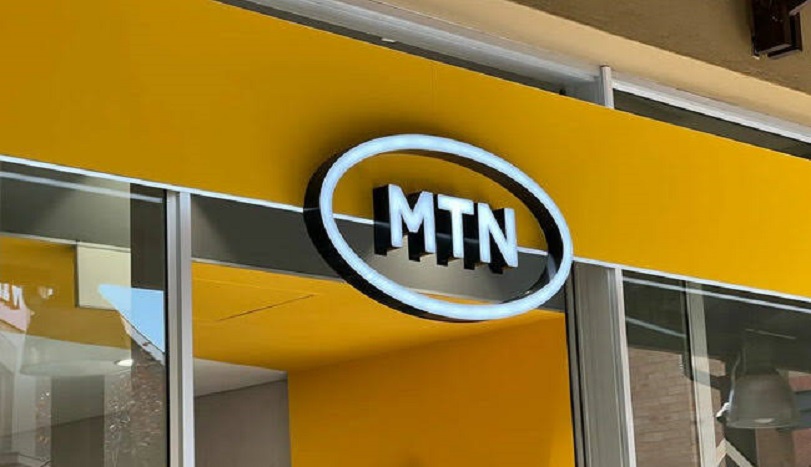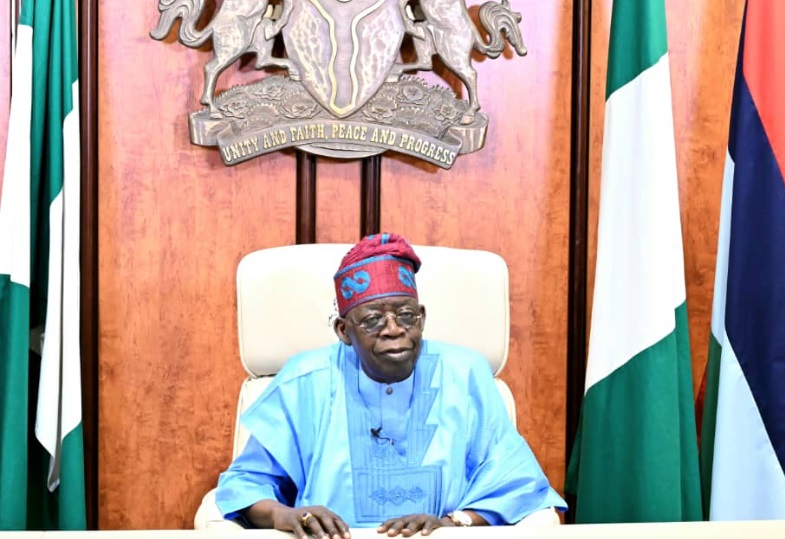Economy
South Sudan Inflation Drops to 370% in January—IMF


By Dipo Olowookere
The International Monetary Fund (IMF) says the annual inflation rate of South Sudan rose to about 550 percent in September 2016 before declining to 370 percent in January 2017.
On March 15, 2017, the Executive Board of the world body concluded the Article IV consultation with the youngest country in the world.
The IMF affirmed that South Sudan faces enormous economic and humanitarian challenges in the aftermath of internal conflict and external shocks.
It noted that the relapse into violence a few months after forming a transitional government of national unity in April 2016 compounded the humanitarian crisis and derailed the peace process, observing that the conflict has contributed to the deaths of thousands and led to severe food insecurity for nearly half of the population, as well as a substantial flight of refugees to neighbouring countries.
It pointed out that economic conditions have deteriorated rapidly since the beginning of the civil conflict in late 2013, adding that real GDP growth declined by nearly 20 percent in the two years through 2015/16.
The IMF said conflict and the collapse of oil prices led to a decline in oil production and export proceeds, stressing that falling government revenue and rising security-related spending caused the fiscal deficit to rise rapidly, which exacerbated the economic instability.
Monetization of the fiscal deficit led to strong money growth, high inflation and precipitous exchange rate depreciation. Since December 2015, the South Sudanese pound has lost more than 95 percent of its value against the US Dollar, it said.
The IMF said authorities shifted economic policy course in late 2016 with the passing of a new budget for 2016/17, which incorporates bold fiscal measures that could go a long way to restore macroeconomic stability and strengthen public financial management.
Preliminary information indicates a substantial reduction in the fiscal deficit for the first half of the fiscal year and significant moderation in money growth, the global financial institution said.
The medium-term outlook faces challenges and significant downside risks. Without significant progress toward peace and economic stabilization, the economic trajectory for South Sudan is highly unstable, and the country risks falling into a spiraling trap of deteriorating economic performance and worsening security conditions with continued high humanitarian costs, it noted, adding that a sustainable medium-term outlook is predicated on achieving progress on normalization of the political and security situation, sustained economic adjustment and reforms, and renewed access to external financing.
It observed that assuming that peace was achieved, the fiscal deficit could fall to 2–3 percent of GDP in the coming years consistent with a return to single digit inflation and exchange rate stability. In the next five years, annual GDP growth could increase to 5-6 percent, reflecting a recovery in oil production and in non-oil GDP.
Economy
MTN Offers N50bn Commercial Paper to Investors

By Aduragbemi Omiyale
Commercial paper worth N50 billion has been offered to investors by a leading telecommunications firm in the country, MTN Nigeria Communications Plc.
The offer is only open for subscription for a day, according to details of the exercise obtained by Business Post.
Subscription for the commercial paper opened on Monday, December 23, 2024, and closed today, Tuesday, December 24, 2024.
MTN Nigeria said it went for the N50 billion commercial paper sale to raise funds for its short-term working capital requirements.
It offered the paper in two series of 15 and 16, the former taking a 180-day tenor and the latter a 270-day tenor.
MTN Nigeria sold the six-month paper at a discount rate of 24.2162 per cent and the nine-month paper at 23.8780 per cent.
The exercise is under MTN Nigeria’s N250 billion commercial paper programme. According to the Nigerian Communications Commission (NCC), MTN Nigeria boasts 80,376,120 subscribers across the country and controls a market share of 51.09 per cent as of October 2024.
The telco was the first to launch a 5G network in Nigeria, providing coverage in key cities in the six geopolitical regions with population coverage of 12.7 per cent.
MTN Nigeria has approximately 45.3 million active data users and 2.8 million active mobile money wallets, driving digital and financial inclusion in a young and fast-growing population.
Economy
I Stand by My Economic Reforms—Tinubu

By Adedapo Adesanya
President Bola Tinubu has again said he has no regrets about removing the petrol subsidy in May 2023 and introducing other reforms in the country.
“I don’t have any regrets whatsoever about removing the petrol subsidy. We are spending our future, we were deceiving ourselves, that reform was necessary,” the President told selected reporters during a pre-recorded media chat on Monday night at his Bourdillon residence in Ikoyi, Lagos State.
President Tinubu said that the removal of the petrol subsidy last year increased competition within the sector and that the pump price of petrol gradually crashed.
“The market is being saturated. No monopoly, no oligopoly, a free market economy flowing,” he said.
President Tinubu, who took office in May 2023, has always hammered on the need for the reforms, despite calls from several quarters to alleviate increased hardship brought on by his policies.
Business Post reports that he defended the policies recently at the 2025 Budget presentation as he has done on a number of occasions, including at a conference in Riyadh, Saudi Arabia earlier this year.
He also said he does not believe in price control and he won’t go that path.
“I don’t believe in price control, we will work hard to supply the market,” he said.
He also said it was about time to bring the governance down, adding that, “we will try.”
The President said the country will be looking at agriculture, export incentives, harnessing the marine ecosystem; bringing affordable transportation.
“We will bring it down gradually,” he added.
He continued, “The key is to produce more for local consumption and exports while reducing imports. We’re supporting farmers with low-interest loans and improving security to encourage agricultural activities.
“Mechanised farming is being prioritised, with thousands of tractors set to arrive in the country. In addition, we’re incentivising local drug manufacturing and harnessing our marine ecosystem for economic growth.
“By addressing these sectors, we aim to bring down costs and stimulate the economy,” he noted.
Economy
Unlisted Securities Market Loses 1.10% to Christmas Profit-Taking

By Adedapo Adesanya
There was a 1.10 per cent depreciation at the NASD Over-the-Counter (OTC) Securities Exchange on Monday, December 23 as investors booked profit ahead of the Christmas break.
This was largely influenced by the decline suffered by three securities on the trading platform, with FrieslandCampina Wamco Nigeria Plc losing N3.84 to sell for N40.00 per share compared to the previous session’s N43.84 per share.
Further, Central Securities Clearing System (CSCS) lost N1.50 to close at N22.00 per unit versus the preceding trading day’s N23.50 per unit, and First Trust Microfinance Bank moderated by 2 Kobo to 34 Kobo per share from 36 Kobo per share.
Conversely, Okitipupa Plc appreciated by N3.27 to end at N35.99 per unit compared with last Friday’s closing price of N32.72 per unit, Geo-Fluids Plc improved its value by 32 Kobo to sell at N4.20 per share versus the previous session’s N3.88 per share, and UBN Property Plc recorded an 11 Kobo appreciation to trade at N2.00 per unit, in contrast to the preceding trading day’s value of N1.89 per unit.
When the bourse ended for the session, the market capitalisation lost N12 billion to settle at N1.031 trillion compared with last Friday’s N1.043 trillion and the NASD Unlisted Security Index (NSI) gave up 33.49 points to end the day at 3,009.78 points as against 3,043.27 points it recorded at the previous session.
Yesterday, the volume of securities traded at the bourse significantly rose by 628.8 per cent to 8.6 million units from the 1.2 million units of the previous session, but the value of securities transacted by the market participants went down by 22.5 per cent to N39.6 million from N51.2 million, as the number of deals increased by 158.3 per cent to 31 deals from the 12 deals recorded in the preceding trading day.
At the close of business, Geo-Fluids Plc was the most traded equity by volume on a year-to-date basis with 1.7 billion units worth N4.0 billion, trailed by Okitipupa Plc with 752.4 million units valued at N7.8 billion, and Afriland Properties Plc with 297.7 million units sold for N5.3 million.
The most traded equity by value on a year-to-date basis was still Aradel Holdings Plc with 108.7 million units valued at N89.2 billion, followed by Okitipupa Plc with 752.4 million units sold for N7.8 billion, and Afriland Properties Plc with 297.7 million units worth N5.3 billion.
-

 Feature/OPED5 years ago
Feature/OPED5 years agoDavos was Different this year
-
Travel/Tourism8 years ago
Lagos Seals Western Lodge Hotel In Ikorodu
-

 Showbiz2 years ago
Showbiz2 years agoEstranged Lover Releases Videos of Empress Njamah Bathing
-

 Banking7 years ago
Banking7 years agoSort Codes of GTBank Branches in Nigeria
-

 Economy2 years ago
Economy2 years agoSubsidy Removal: CNG at N130 Per Litre Cheaper Than Petrol—IPMAN
-

 Banking2 years ago
Banking2 years agoFirst Bank Announces Planned Downtime
-

 Sports2 years ago
Sports2 years agoHighest Paid Nigerian Footballer – How Much Do Nigerian Footballers Earn
-

 Technology4 years ago
Technology4 years agoHow To Link Your MTN, Airtel, Glo, 9mobile Lines to NIN





















